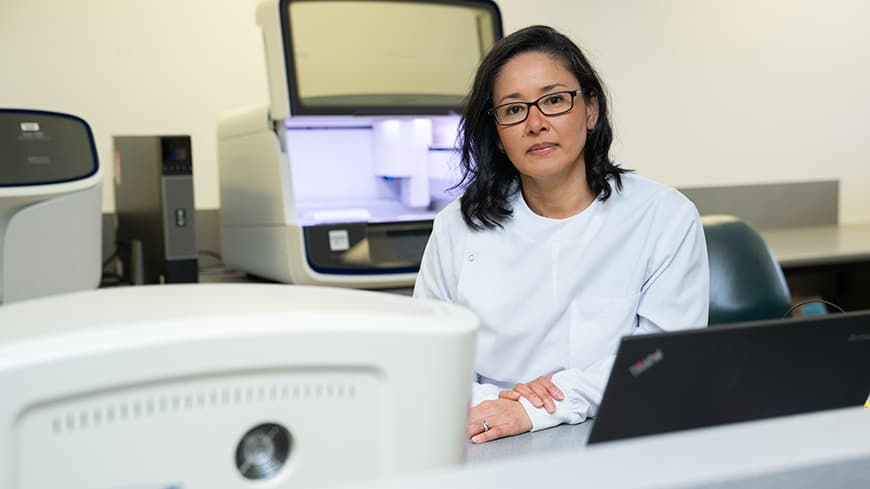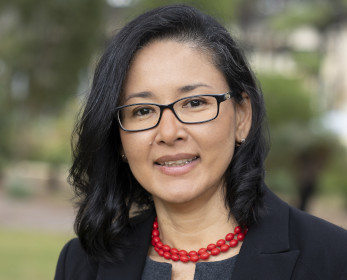 The WAMI is spearheaded by ECU's Professor Elin Gray.
The WAMI is spearheaded by ECU's Professor Elin Gray.
Researchers from Edith Cowan University (ECU) as part of a large Western Australia Melanoma Initiative (WAMI) will implement a new and specialised immune cell therapy for cancer patients in WA, thanks to $3.5 million in research grants.
$2.5 million will come from the Cancer Research Trust (CRT), with a further $1 million from the Harry Perkins Institute of Medical Research (the Perkins), Wind Over Water Foundation, Spinnaker Health Research Foundation and Cancer Council WA – collectively.
The WAMI is spearheaded by ECU's Centre for Precision Health Professor Elin Gray and Chair of Melanoma Discovery at the Harry Perkins Institute of Medical Research Professor Jonas Nilsson, bringing together clinicians and scientists across WA, with knowledge and expertise required to implement TIL therapy and identify patients who would respond to it.
Professor Elin Gray said the team is very grateful to the Cancer Research Trust for its $2.5 million grant and for the additional funding, including generous donations from families of patients affected by melanoma.
"With this significant investment we will be able to lead the implementation of TIL therapy and identify which are in more need of this treatment. Our hope is that we will be able to work with other centres around Australia and the world to improve patient outcomes for diagnoses other than melanoma, too."
What is TIL Therapy?
Tumour-infiltrating lymphocytes (TILs) is a personalised immunotherapy for advanced solid cancers like metastatic melanoma, which is currently not available in Australia.
Funding will be used to establish immunotherapy manufacturing infrastructure in WA, improving on existing immunotherapies being used in other countries.
It will also be used to develop a method using biomarkers to identify patients who are less likely to respond to standard treatments.
Professor Nilsson said the ongoing research will be a multidisciplinary effort requiring clinicians, basic researchers and applied cell biologists to provide and improve TIL and other cell therapies.
"We will establish a platform of collaboration where early ideas can be realised, tested in advanced models and translated into clinical practice. We are truly lucky to have a TGA-accredited clean room facility at Royal Perth Hospital, where Cell and Tissue Therapies Western Australia (CTTWA) manufacture cell therapies for patients locally," Professor Nilsson explained.
"Our grant and project fit perfectly in the research-to-clinic pipeline that Director Zlatibor Velickovic is building at CTTWA, where the TIL therapy trial is the current flagship project."
Professor Elin Gray said biomarkers are important to monitor treatment responses and to predict which patients may need new therapies after traditional treatment failure.
"We are confident we can already predict who might respond to standard of care immunotherapy, but we need to implement this technology. Having a therapy to offer these patients makes predictive biomarkers very powerful,"
"In the last year we have developed clinical infrastructure and an analysis platform that extracts much more information from a patient's blood than is usually analysed in the clinic. This data will be highly useful to alert the cell therapy manufacturing team that there will be a patient needing their therapy," she said.

 The WAMI will implement a new and specialised immune cell therapy in WA.
The WAMI will implement a new and specialised immune cell therapy in WA.



